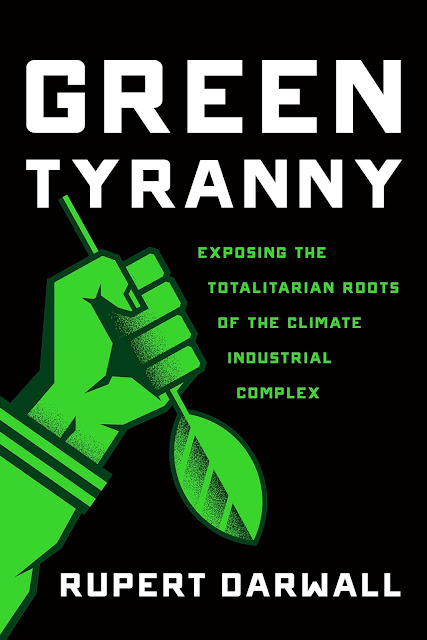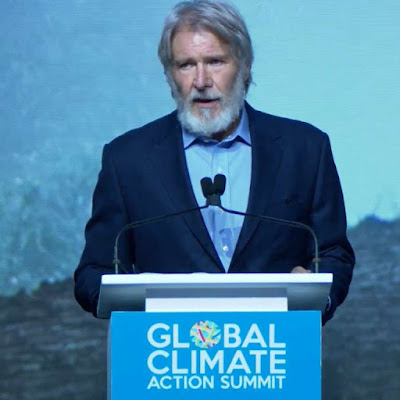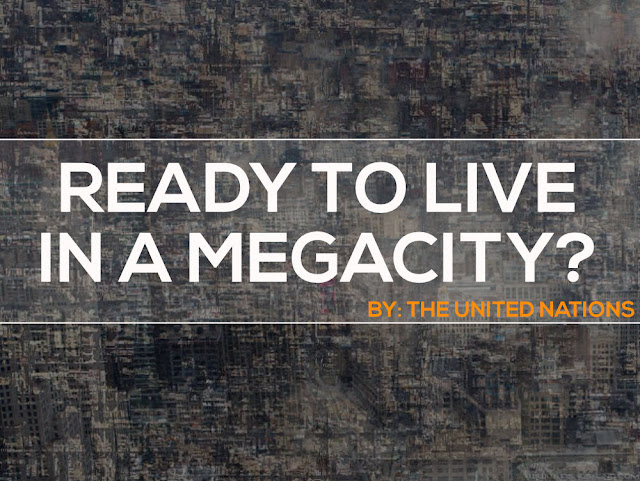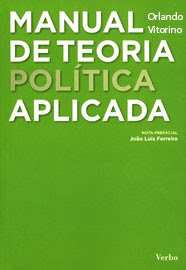This past May, while most of humanity was blissfully unaware, United Nations planners were meeting in Nairobi, Kenya, to devise yet another environmental scheme for the entire Earth — and all the people, plants, and animals thereon. They were laboring over what they are calling the Global Pact for the Environment.
Most of our planet’s inhabitants have heard of the UN Paris Agreement on global warming, which was signed with great fanfare by world leaders — including President Obama — in the French capital in 2015. Relatively few, however, have heard of the UN’s stealth programs for planetary control such as Agenda 21 (launched in 1992) and Agenda 2030, (launched in 2015), mammoth schemes that envision totalitarian regimentation of all human activity by UN elites and their national counterparts. Implementation of those radical social-engineering schemes is already vigorously underway. For the globalists, however, those and other UN regulatory regimes ostensibly aimed at environmental concerns do not go far enough fast enough. Thus, they say, the need for a Global Pact for the Environment that will be “legally binding” on all nations. And, hence, they are dismayed at the failure of the UN delegates at the Nairobi conference to “seal the deal.”
“Despite unfolding ecological catastrophes around the world, negotiations on a potentially groundbreaking Global Pact for the Environment have faltered,” laments Stewart M. Patrick of the Council on Foreign Relations (CFR). “Its many champions had hoped for a binding multilateral treaty that would place all international environmental law within a coherent legal framework,” noted Patrick, in his September 30 blog post, but, in the end, “UN member states meeting in Nairobi in May could only agree on a watered-down goal: a ‘political declaration’ to be prepared by 2022, to coincide with the 50th anniversary of the historic 1972 Stockholm Conference on the Human Environment.”
However, Stewart Patrick, who is the Council’s “Senior Fellow in Global Governance and Director of the International Institutions and Global Governance Program,” notes that he and his fellow one-worlders are pushing ahead nevertheless, because “the setback in Nairobi was disappointing but not fatal, as momentum for an agreement will inevitably build as the world’s environmental crisis deepens.”
Besides, he says, “while a ‘declaration’ may seem a thin reed upon which to construct a healthier relationship with the planet, history suggests that even nonbinding declarations can catalyze the development of international legal norms.” Indeed, Patrick and his fellow "catalysts" are well on their way to catalyzing precisely such an outcome. In his blog post entitled “As Negotiations Stumble, the Rationale for a Global Environmental Pact Grows,” which also appeared in his weekly column for World Politics Review journal, Patrick mentions that while global media attention was focused on the world leaders attending the UN’s Climate Summit and the UN-orchestrated mob antics of the youth “Climate Strike,” he and other like-minded globalists were participating in “an after-action review of what went wrong in Nairobi — and where the world must go from here.” Yes, Patrick and his CFR confreres, insist they know “where the world must go,” and they are doing all within their considerable power to make us go where they say we must.
The hosts of the confab on Nairobi, says Patrick, “were Columbia University’s Earth Institute and the Club des Juristes, a network of international legal scholars that supports a Global Pact for the Environment.”
Over at Columbia University’s website for the Columbia Center on Sustainable Investment, we learn that the September 25 conference of which Patrick speaks was held “under the guidance of Prof. Jeffrey Sachs, Special Advisor to the UN Secretary-General on the SDGs [Sustainable Development Goals], and Laurent Fabius, President of the Constitutional Council of the French Republic.”
 |
Ban ki-moon, Prof. Jeffrey Sachs and Pope Francis.
|
 |
See here
|
 |
| See here, here, here, here, and here |
Dr. Sachs is well known as the protégé and agent of billionaire globalist George Soros, who has generously funded Sachs and boosted him throughout his career. Professor Sachs received a $50 million pledge from the socialist mogul when he launched his Millennium Promise organization and has appeared on-stage with Soros at many UN events. The greening of the Vatican was a major triumph for the Soros-Sachs tag team, as they played a central role in orchestrating Pope Francis’ radical environmental policies, including his encyclical, Laudato Si. George Soros is a longtime member of the CFR and a former director of the organization. His investment company, Soros Fund Management, is a “President’s Circle” corporate sponsor of the Council.
Sachs is the former director of the Earth Center at Columbia and is currently director of the UN Sustainable Development Solutions Network and co-editor of the World Happiness Report, the Orwellian project of the UN and the annual World Government Summit that proposes to make you “happy” — whether you like it or not! (We have reported on the World Government Summits and the World Happiness Council here, here, here, and here.)
Although he is not listed as a member in the CFR’s most recent annual report (2018), Sachs has been listed as a member in previous reports. Regardless of his current membership status, Sachs is definitely one of the most prominent academic globalists promoting the CFR’s world government agenda. And as befits his close, longtime association with Soros, Sachs seems to be just as chummy with hardcore Marxists as with Wall Street plutocrats. The bio page for him at Trevor Loudon’s Keywiki website notes, for instance, that he has shared the podium with, among others: Frances Fox Piven, co-author of the infamous Cloward-Piven Strategy for achieving socialism in America by recruiting as many people as possible onto welfare rolls until it breaks the economy; radical professor Cornel West, the “Ivy League Al Sharpton,” who praises the violent Antifa hoodlums and works closely with the violent Maoists of the Revolutionary Communist Party; Richard Trumka, the president of AFL-CIO who works closely with the Democratic Socialists of America and has condoned and promoted violence by union thugs; Jim Wallis, the “Christian socialist” minister/author/activist who was a president of the violent Students for a Democratic Society (SDS) back in the 1960s.
Sachs also signed onto The Progressive Agenda to Combat Income Inequality of radical New York City Mayor Bill de Blasio and serves as a Sanders Institute Fellow at the think tank founded by Jane O’Meara Sanders, wife of Senator Bernie Sanders.
According to the Columbia Center on Sustainable Investment, the “after-action review” of Nairobi, which took place under Sachs’ “guidance,” was the third annual conference of its kind and “built upon the last two years of diplomatic efforts to promote the Global Pact and discuss opportunities to strengthen international environmental governance. This conference focused on the ability of a Global Pact for the Environment, which aims to unify international environmental governance and codify a human right to the environment in international law, to support the 2030 Agenda for Sustainable Development, including by linking the 2030 Agenda to the international environmental legal system.... Specifically, the conference explored potential connections between 2030 Agenda for Sustainable Development and the Global Pact for the Environment, touching upon opportunities for mutual reinforcement and considering priority provisions for Global Pact negotiators to include to maximize impact.”
In addition to Stewart Patrick and Jeffrey Sachs, the Columbia conference panelists included:
• Yann Aguila, partner at Bredin Prat; professor of public law at Sciences Po and Paris Bar School, chair of the Environmental Law Commission, Club des Juristes
• Joan Carling, co-convener of the Indigenous Peoples Major Group for Sustainable Development
• John Denton, secretary general of the International Chamber of Commerce
• Francisco Duarte Lopes, the permanent representative of Portugal to the United Nations
 |
| Francisco Duarte Lopes. See here |
 |
See here
|
 |
See here
|
• Geneviève Dufour, professor of law at the University of Sherbrooke
• María Fernanda Espinosa Garcés, president of the 73rd Session, UN General Assembly
• Amal Mudallali, the permanent representative of Lebanon to the United Nations
• Carroll Muffett, president and CEO of the Center for International Environmental Law
• Nicholas Robinson, executive governor of the International Council of Environmental Law
• Carlos Sallé, director of Energy Policies and Climate Change, Iberdrola
• Satya Tripathi, UN assistant secretary-general and head of the New York office at UN Environment
Patrick Stewart, Jeffrey Sachs, George Soros, the Earth Center, the Club de Juristes, the Council on Foreign Relations, and their one-world allies are placing a great deal of stock in achieving their Global Pact for the Environment because as “international law” it will provide them with unending opportunities to cudgel the United States and other countries into submission to UN authority. Lawsuits by lefty environmental attorneys and decisions against U.S. sovereign interests by lefty federal judges would be the main threat posed by the Pact — at first. But CFR President Richard Haass recently let it be known that his organization is pressing for a much more radical vision. In his September 13 column entitled “The Amazon and You,” Haass flogs the “Amazon is Burning!” hysteria and asserts that “What happens within a country can no longer be considered its concern alone in a global age.” According to the CFR honcho, “What is going on in Brazil highlights a fundamental tension in the world. Brazil’s government holds to the view that what happens inside the country’s borders falls within its purview alone. This is the traditional notion of sovereignty.… But it is an increasingly inadequate, if not obsolete, notion in today’s globalized world.”
Then he gets down to what the Global Pact is really all about: applying “pressure” and “penalties” to those that do not conform to UN-defined “obligations.” Which means this is really about empowering global authorities to overrule national and local governments. Haass declares that “sovereignty entails obligations as well as rights. And where compliance cannot be induced, pressure must be applied. The time has come to consider penalties against a government such as Brazil’s if it refuses to meet its obligations to the world.” (Emphasis added.)
(in The New American, 08 October 2019).
 |
| See here |


















































































Nenhum comentário:
Postar um comentário